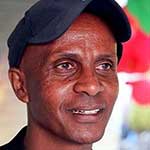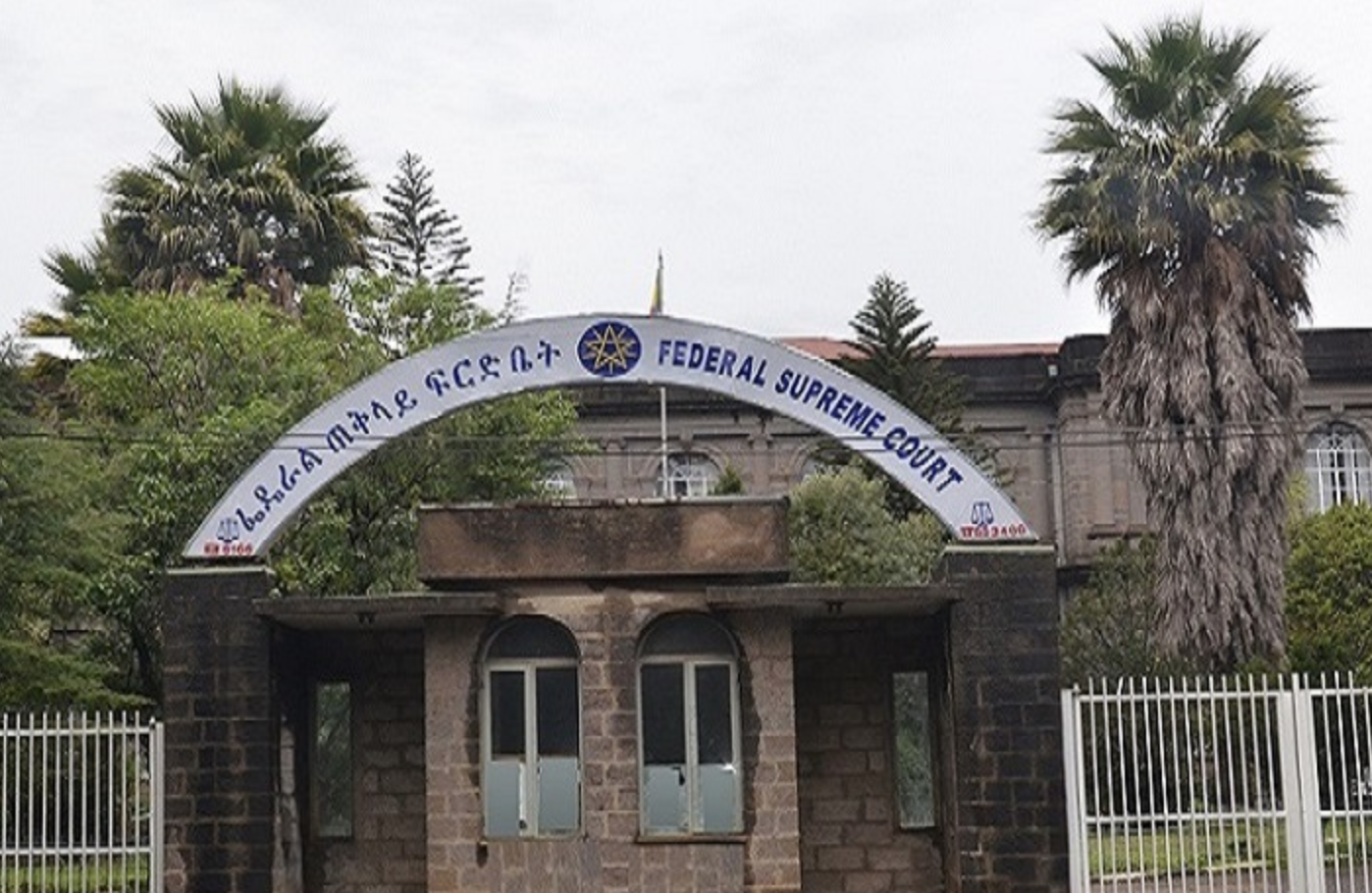
Radar | Apr 16,2022
Nov 21 , 2018.
Slowly but consistently, public opinion towards the state-owned Metals & Engineering Corporation (MetEC) has been turning negative since its establishment in 2010. The military-industrial conglomerate had begun to seem less like the domestic-bred, capacity-building manufacturing nucleus it was promised to be, and more like an inefficient parastatal as cost over-runs and project delays came to be associated with it. For many, it was the excess of Ethiopia’s economic model of developmental statism.
Last Monday’s press briefing by Berhanu Tsegaye, the attorney general, attested to reports and allegations that have been made against MetEC for years. No surprises there. However, the investigation that took five months before it was brought to the public’s attention brought a comprehensive picture of the alleged misuse and abuse of resources under the Corporation’s command.
The state and private media took up the mantle from there on. In the days that followed, documentaries about the indulgences of MetEC were played and replayed, with high-ranking officials joining the fray to corroborate an excess of alleged mismanagement and corruption. It was as well a topic popular in the social media echo chamber.
There seemed to be a clear and concise agreement that past suspicions and present information coming from the Attorney General and current government officials established the guilt of the former senior management members of MetEC long before their guilt has been established in a court of law.
The allegations point to unprecedented levels of corruption. Procurements worth billions of Birr were said to be made without following the proper bidding processes, and officials in the way of MetEC were allegedly intimidated.
As these reports were unravelling, Kinfe Dagnew (M. Gen), the founding CEO of MetEC, was arrested. Images of him handcuffed and being flown into the capital were broadcasted. By the time he appeared before a judge last Wednesday, his and many others’ guilt was already established in the court of public opinion.
His claim that he wanted the court to assign him a public defender, because he could not afford a lawyer bought no currency in the eyes of the public. Assuming that he is wealthy from the lootings of public funds, he was laughed at. This was a man trying to hoodwink the public once again, the popular sentiment went. It is a scene replayed from the past, in which suspects apprehended and tried in the court of public opinion are denied the opportunity to defend themselves or justify their actions. Indeed, old habits die hard, and this should be troubling.
Allegations by officials, the statements by the Attorney General, the projects that failed to materialise and the documentary pieces that painted a grim picture of MetEC were taken at face value as proof of the guilt of former executives. In the midst of all the one-sided public indignation, there are barely any calls for the people on the other side of the aisle to explain themselves.
The court of public opinion has often been a powerful tool in the hands of the state machinery since the time of Emperor Haile Selassie. Perhaps the most memorable one of its kind was the Dergue‘s depiction of Haile Selassie as a leader without a moral compass, the sort that puts on a lavish birthday party using public funds, while there is famine in the country.
The problem is not that the report was not factual. But individuals in former leadership positions during Haile Selassie’s time were not allowed to explain themselves. It was a partisan reproduction of events. It only served the purposes of the incumbent for the simple reason that the accused were not allowed a fair trial in the court of public opinion.
The script was no different when it was repeated in the early 1990s on the senior officials of the Dergue or the fallout with Seyee Abraha et al. and recently Melaku Fenta and codefendents. In all these cases, long before the suspects’ guilt was established, they were tried and convicted in the court of public opinion.
The present is no different from how mass communication has been used by the state to shape public opinion. It is a recurrent nightmare where the administration of Prime Minister Abiy Ahmed (PhD) failed to learn a lesson from history. Yet again, individuals’ guilt is established before the cases reach the courts. Not even formal charges were pressed against the individuals paraded on the TV screens last week. Objectivity is pulled under the public’s feet, and a single point of view is presented for assimilation by the masses. Defending, or even in some cases calling for sobriety, becomes taboo.
The accused, guilty or not, are thrown into the fray of condemnation, even though their guilt is a matter that cannot be established by the Attorney General’s office or the state media but only by the courts.
While the courts are expected to judge matters on the basis of evidence, reason and the laws of the nation, the court of public opinion faces no such obstacles. Here, what are of prime criteria are emotions. And those holding the state power are happy to play with it. By building on already established biases, the suspects are made easy game. But it is not a fair game.
Of course, it could be argued that the accused can still defend themselves through their lawyers after criminal litigation begins. There appears to be not much disagreement over the importance of due process. But that the principle of presumption of innocence until proven guilty also matters in the public’s court is not well understood. Or it is not taken seriously, if not deliberately used for political expediency.
It is a tricky matter in that while public opinion may not condemn one to a prison sentence, it does lead to social, economic and political disenfranchisement. For all the punishments it exacts, the public’s opinion rarely recognises that, in the event of lack of proof beyond a reasonable doubt, even if there is an overwhelming supposition of guilt, individuals should be presumed innocent.
The genius of the justice system is to reduce the element of bias, inherent in all humans, in decision-making in favour of clear procedures that dilute emotions. These elements are not present in the public sphere, thus the mantle should be taken by media outlets with a responsibility to present cases to the public with fairness as the highest standard.
What was evident last week was how the media continues to be compliant, does not exercise fairness and serves with an agenda. It established guilt by presenting a one-sided story and served as a tool for public shaming. It was a far cry from an attempt in institutional reforms that protect individual citizens from arbitrariness.
Whatever the suspects may or may not be guilty of, they deserve to have their day in court where they should be given fair and speedy trials. Until such time, all those put under custody last week have the right to be presumed innocent. This is a decency that should be extended to any citizen whatever the suspicions of the public or the offences that were perpetrated.
Fairness is a double-edged sword; it cannot only apply to those that subscribe to the acceptable moral, ethical or legal code. Public bias and collective emotion should not cloud the high moral standard this nation ought to have. The rule of law is far more sophisticated than this.
PUBLISHED ON
Nov 21,2018 [ VOL
19 , NO
969]

Radar | Apr 16,2022

Fortune News | Jul 13,2025

Radar | Jun 07,2020

My Opinion | May 24,2025

Commentaries | Sep 17,2022

Verbatim | Jan 25,2020

My Opinion | Jun 27,2020

Covid-19 | Apr 01,2020

Fortune News | Dec 10,2018

Radar | Apr 04,2020

My Opinion | 132041 Views | Aug 14,2021

My Opinion | 128437 Views | Aug 21,2021

My Opinion | 126364 Views | Sep 10,2021

My Opinion | 123987 Views | Aug 07,2021

Dec 22 , 2024 . By TIZITA SHEWAFERAW
Charged with transforming colossal state-owned enterprises into modern and competitiv...

Aug 18 , 2024 . By AKSAH ITALO
Although predictable Yonas Zerihun's job in the ride-hailing service is not immune to...

Jul 28 , 2024 . By TIZITA SHEWAFERAW
Unhabitual, perhaps too many, Samuel Gebreyohannes, 38, used to occasionally enjoy a couple of beers at breakfast. However, he recently swit...

Jul 13 , 2024 . By AKSAH ITALO
Investors who rely on tractors, trucks, and field vehicles for commuting, transporting commodities, and f...

Jul 13 , 2025 . By YITBAREK GETACHEW
The Addis Abeba City Revenue Bureau has introduced a new directive set to reshape how...

Jul 13 , 2025 . By BEZAWIT HULUAGER
Addis Abeba has approved a record 350 billion Br budget for the 2025/26 fiscal year,...

Jul 13 , 2025 . By RUTH BERHANU
The Addis Abeba Revenue Bureau has scrapped a value-added tax (VAT) on unprocessed ve...

Jul 13 , 2025 . By NAHOM AYELE
Federal lawmakers have finally brought closure to a protracted and contentious tax de...